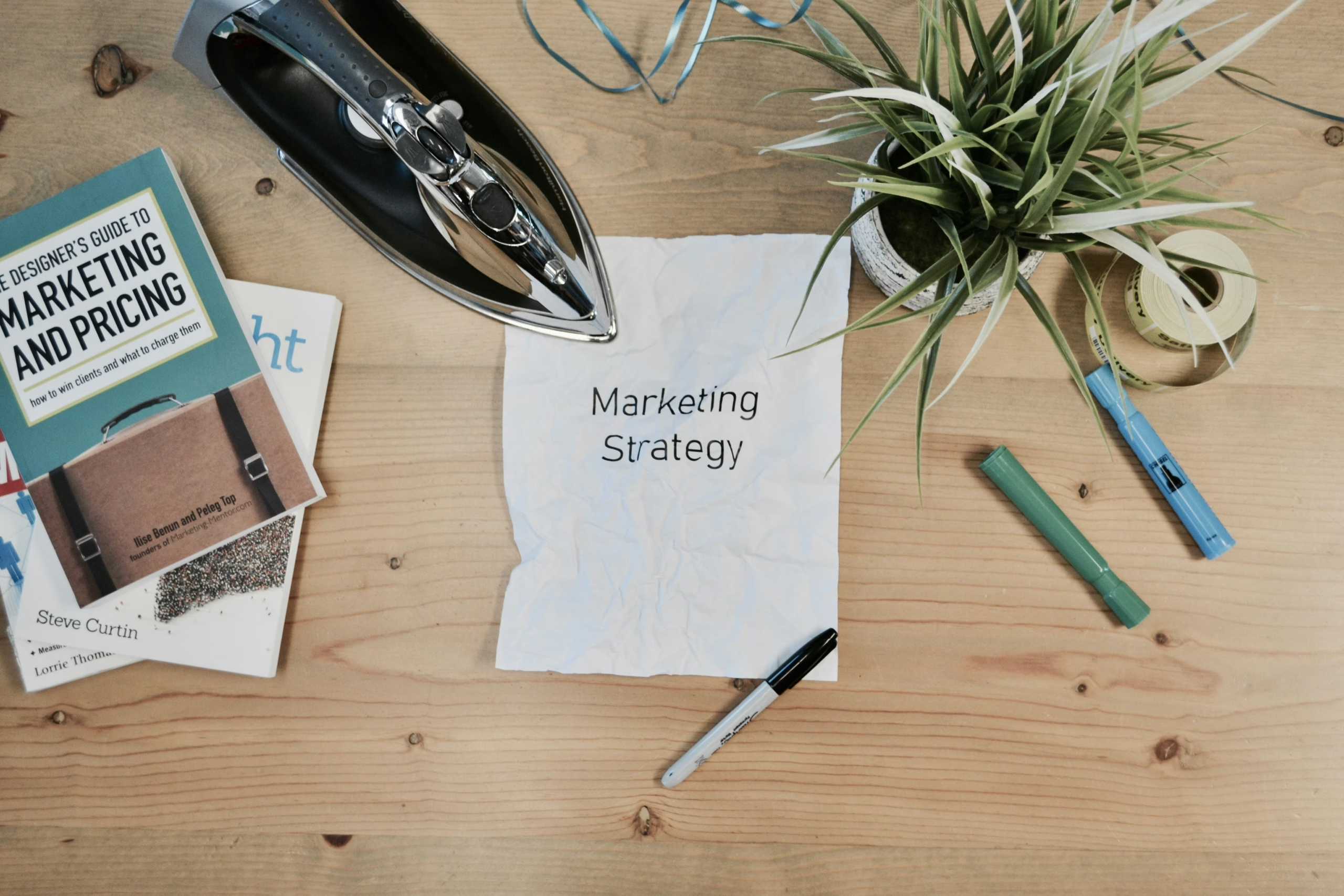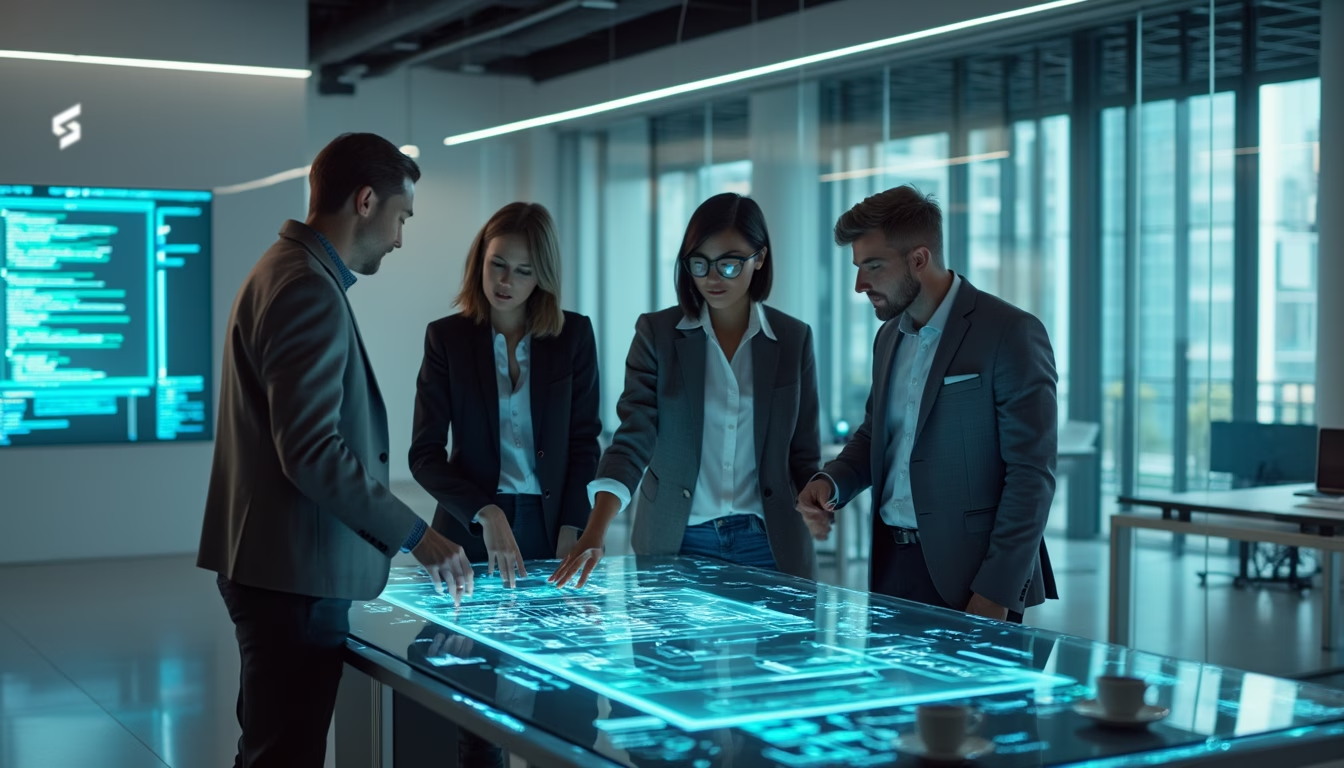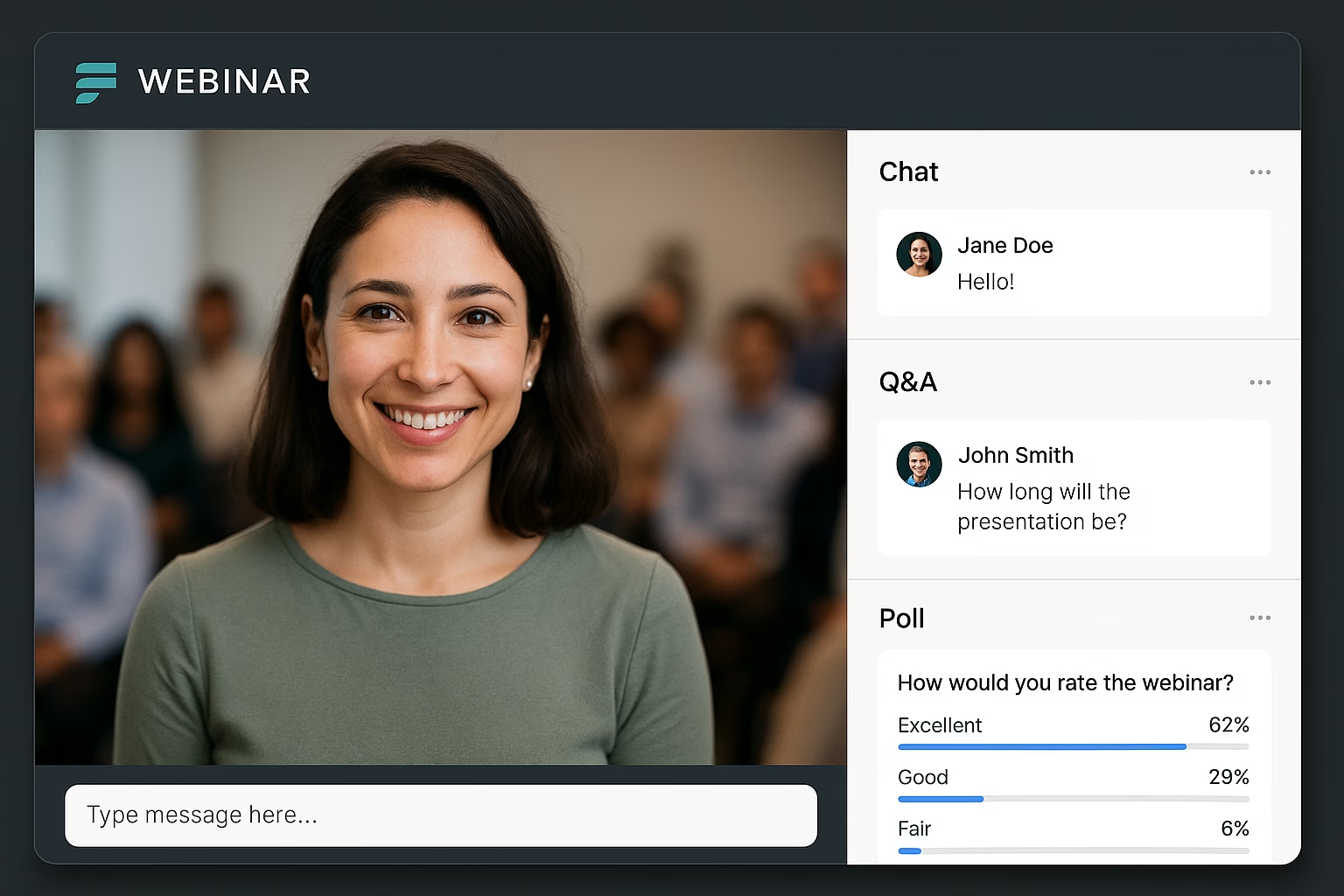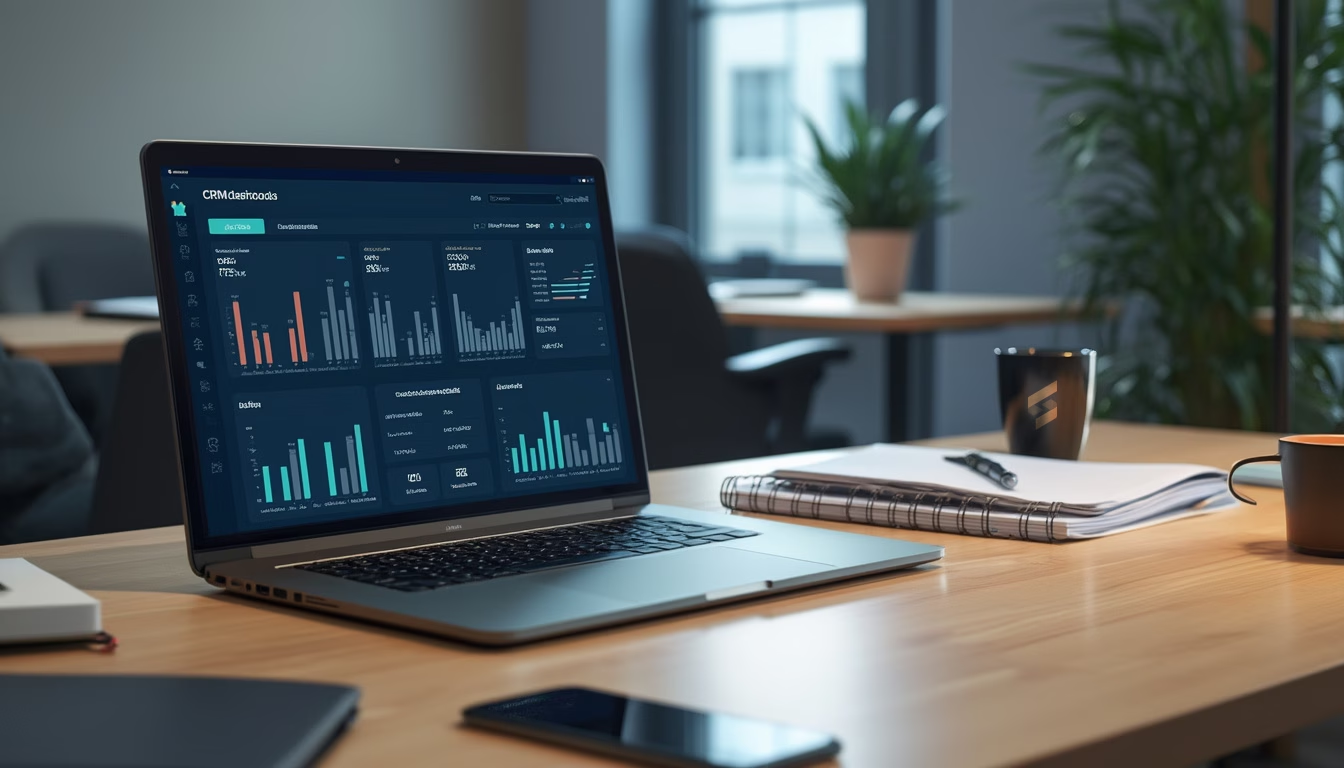By Martin H. Morrissette, Sirocco CMO – Book time with me
As we step into 2025, artificial intelligence is redefining industries with unprecedented speed and scope. Giants like Salesforce, Microsoft, and Google are at the forefront of this revolution, embedding AI to streamline operations, elevate customer experiences, and drive measurable value. Salesforce, for instance, projects over $4 billion in annual revenue from its AI-driven innovations starting this year. Meanwhile, the global AI investment landscape is surging, with expenditures predicted to exceed $1 trillion in 2025 – a testament to the technology’s transformative impact. The potential economic ripple effects are staggering. Analysts forecast that AI could contribute over $15 trillion to the global economy by 2030, reshaping everything from supply chains to personalised marketing.
However, this growth isn’t just about technology, but about aligning these advancements with people and processes to create sustainable, scalable innovation. Workforce reskilling has become a cornerstone of this transformation. Business leaders worldwide are prioritising skills such as data literacy and prompt engineering, ensuring employees can thrive in AI-augmented roles. At Sirocco, we understand the challenges and opportunities of this new era. Our approach combines cutting-edge AI solutions from industry leading vendors with a deep focus on seamless integration and skilled team enablement. By aligning AI’s potential with your business goals, we help you unlock growth, solve complex challenges, and build a future-ready organisation.
Industry impacts: Quantifiable gains and emerging trends
AI’s impact varies significantly by sector, delivering measurable outcomes while driving transformative trends. AI will play a significant role in Sales Management/Automation, Customer Service, Marketing and Operations. While the following examples highlight key achievements, they represent just a small fraction of AI’s potential across industries:
Manufacturing: Predictive maintenance powered by AI is reducing unplanned downtime by up to 30%, achieved by analysing sensor data to anticipate equipment failures. AI-driven robotics are automating complex processes, enhancing production efficiency, and reducing labour costs. Additionally, generative AI is being used to design components and optimise supply chain logistics, minimising waste and accelerating time-to-market.
Energy: In energy, AI optimises smart grids, cutting losses by 10–15% and stabilising distribution. It’s also shaping the future of renewables by enabling smarter energy generation and storage for solar and wind power. AI applications in predictive weather modelling are further enhancing the efficiency of renewable energy forecasting, supporting a more sustainable energy ecosystem.
Retail: AI is creating hyper-personalised customer journeys. Recommendation engines increase purchase likelihood by 20%, while AI-driven experiences like virtual try-ons blend physical and digital retail worlds seamlessly. Inventory management systems powered by AI are reducing stockouts and overstock situations, saving retailers millions annually and improving the customer experience.
Telecommunications: Network optimisation powered by AI is reducing latency by up to 20%, improving service quality and satisfaction. Looking ahead, AI will be integral to 6G networks, enabling advances like ultra-low latency applications for autonomous vehicles and remote surgery. Additionally, AI chatbots and virtual assistants are revolutionising customer support, reducing response times and enhancing customer satisfaction.
These examples offer a glimpse into AI’s diverse applications, but they’re only the beginning. Across every sector, AI is uncovering new possibilities, sparking innovation, and redefining how industries operate. As we explore the technological advancements driving these changes, it’s clear that the potential for transformation is vast.
Enhanced AI capabilities, AI agents and workplace automation
AI models are advancing with enhanced reasoning abilities, enabling them to solve complex problems that traditionally required human intuition. This progress spans coding, mathematics, and legal workflows. For instance, AI tools are increasingly adept at comparing contracts, generating efficient code, and executing intricate workflows—delivering tangible efficiency gains across industries. Generative AI is also expanding beyond text into areas like video production, creating personalised content for marketing and education. Meanwhile, multimodal models capable of processing text, images, and audio simultaneously are redefining how we interact with technology. These advancements are enabling technology to understand and respond in more human-like ways, paving the path for richer, more intuitive experiences.
The emergence of AI agents is reshaping workplace dynamics. These agents go beyond managing emails or scheduling tasks—they leverage memory, reasoning, and multimodal capabilities to execute complex processes. From supply chain management to optimising sales orders, AI agents are driving operational efficiency without requiring extensive technical expertise. By 2025, AI agents are expected to transcend their current capabilities, operating autonomously to execute tasks across sectors. This evolution will redefine productivity, making AI a core enabler of operational efficiency. Moreover, AI agents are fostering collaboration in multi-agent systems, where teams of AI entities work together to solve intricate problems, mirroring human teamwork. This approach is already being tested in industries like logistics, where autonomous agents coordinate deliveries to improve efficiency.
Charles Lamanna (Corporate Vice President, Business and Industry Copilot at Microsoft): “By this time next year, you’ll have a team of agents working for you. This could look like anything from an IT agent fixing tech glitches before you even notice them, a supply chain agent preventing disruptions while you sleep, sales agents breaking down silos between business systems to chase leads, and finance agents closing the books faster.” 1
Finding the balance between technology and responsibility
As AI continues to evolve, so does the regulatory environment surrounding it. Legislative frameworks like the European Union’s AI Act are now setting stringent standards for high-risk AI applications, focusing on fairness, accountability, and safety. Organisations must not only comply with these regulations but also navigate complex ethical challenges, such as safeguarding data privacy and addressing biases. Mitigating bias, for instance, is a multi-faceted task that requires thorough pre-deployment testing, the development of fairness-aware algorithms, and continuous post-deployment monitoring. Tools like Microsoft’s Fairlearn and Google’s What-If Tool offer powerful capabilities to detect and correct biases in AI systems, helping ensure that decisions are made equitably. Moreover, it is crucial to prioritise diverse data sources to represent the full spectrum of users and avoid perpetuating systemic inequalities.
Grace Yee (Senior Director, Ethical Innovation at Adobe): “2025 will mark a pivotal shift as consumers and businesses . . . gravitate towards tools that embed ethics into their generative AI product DNA from the outset. Companies that embrace ethical innovation will gain a competitive edge, setting themselves apart in a market driven by trust and responsible AI practices.” 2
Securing AI systems, particularly in multi-agent environments, presents another significant hurdle. To protect against threats such as unauthorised data access and coordinated cyberattacks, organisations must implement robust encryption strategies, enforce continuous monitoring, and employ sandboxing techniques to safely isolate interactions between agents. It’s an intricate landscape to navigate, but with the right approach and expertise, these risks can be managed effectively. Our team is here to provide guidance on overcoming these challenges, ensuring your AI systems are both secure and responsible.
Transforming workspaces: A new frontier?
AI’s integration into workspaces is redefining office environments, enabling productivity gains and reshaping collaboration:
- Automation & Productivity: AI agents are streamlining tasks ranging from routine activities like meeting notes to complex workflows such as processing orders, freeing employees for strategic initiatives.
- Personalised Assistance: AI copilots tailored for specific industries are providing contextual support, moving beyond generic tools to address unique organisational challenges.
- Smarter Spaces: AI optimises office environments by analysing space usage, suggesting meeting arrangements, and streamlining resource allocation—creating efficient, employee-centric spaces.
- Employee Well-being: AI is being leveraged to monitor workloads, reduce stress, and promote healthier work-life balance. By automating repetitive tasks, employees can focus on more fulfilling, creative work. Additionally, inclusive AI-driven tools ensure accessibility for employees with diverse needs.
- Workforce Upskilling: The rise of AI necessitates a focus on reskilling, equipping employees with capabilities like data literacy and prompt engineering to collaborate effectively with AI systems.
- BYOAI (Bring Your Own AI): Personal AI agents are becoming commonplace, requiring organisations to integrate them securely into enterprise systems.
These transformations highlight the critical role of human expertise in shaping AI’s trajectory. Reskilling and ongoing education ensure teams are not only equipped to use AI but also to innovate alongside it.
What about the future of predictive AI?
Predictive AI is set to revolutionise operations in the coming years, blending advanced analytics with innovative applications. The convergence of generative AI and predictive modelling is expected to enable more context-rich and accurate insights, driving smarter decision-making across industries. Business-focused machine learning (BizML) solutions will play a critical role in streamlining operations, while advancements in robotics integration will enhance automation capabilities. Organisations are also projected to significantly increase their AI investments to maintain competitiveness, reflecting the technology’s growing importance. As these developments unfold, it’s clear that predictive AI will continue to shape the business landscape, offering unparalleled opportunities for growth and transformation.
Navigating the path forward, with expert guidance
AI’s evolution presents both unprecedented opportunities and pressing challenges. Organisations must embrace innovation thoughtfully, aligning cutting-edge tools with a clear ethical framework and a commitment to workforce readiness. At Sirocco, we know that transforming your business through AI isn’t just about adopting new tools but about empowering people, optimising processes, and making technology work seamlessly for your goals. With our expertise in AI integration and process design, we’re here to help you build a future where innovation drives success. Let’s create the next chapter of innovation together. Ready to see how AI can redefine your business? Contact us today to explore how we can help you lead in this AI-driven future.
Want to learn more about how AI can transform your business? Reach out to us for a consultation or to explore our services:










